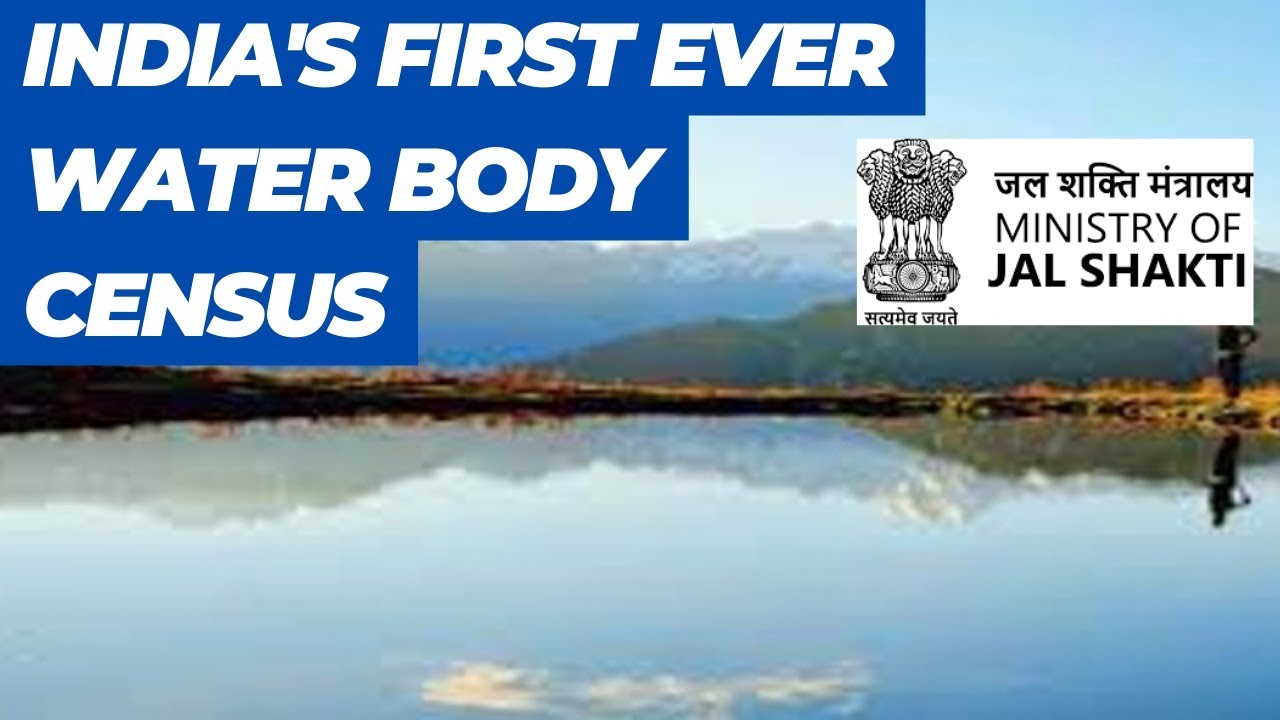Ahmedabad
(Head Office)Address : 506, 3rd EYE THREE (III), Opp. Induben Khakhrawala, Girish Cold Drink Cross Road, CG Road, Navrangpura, Ahmedabad, 380009.
Mobile : 8469231587 / 9586028957
Telephone : 079-40098991
E-mail: dics.upsc@gmail.com

First ever Census of Water Bodies
News: The Ministry of Jal Shakti has released the report of the first census of water bodies.
What is Census of Waterbodies?
The census was conducted in conjunction with the 6th Minor Irrigation Census for 2017-18.
The census defines a waterbody as “all natural or man-made units bounded on all sides with some or no masonry work used for storing water for irrigation or other purposes (example industrial, pisciculture, domestic/drinking, recreation, religious, groundwater recharge etc).
It seeks to develop a national database for all water bodies by collecting information on all important aspects of the subject including their size, condition, the status of encroachments, use, storage capacity, the status of filling up of storage etc.
Key Findings:
Data on Waterbodies:

India has 24.24 lakh water bodies like ponds, tanks and lakes.
West Bengal accounts for most of the water bodies and Sikkim the least.
Andhra Pradesh has the highest number of tanks, Tamil Nadu has the highest number of lakes while Maharashtra leads in water conservation schemes
West Bengal’s South 24 Parganas has been ranked as the top district having the highest (3.55 lakh) number of water bodies across the country.
Classification of waterbodies:
Around 59.55% of water bodies are ponds, followed by tanks (15.7%), reservoirs (12.1%), water conservation schemes/percolation tanks/check dams (9.3%), lakes (0.9%) and others (2.5%).
Encroachment of waterbodies:
The census also collected data on the encroachment of water bodies for the first time, revealing that 1.6% of all enumerated water bodies are encroached, with 95.4% of encroachments in rural areas and the remaining 4.6% in urban areas.
Importance of Waterbodies census:
The census provides a comprehensive overview of the distribution of water bodies in India, highlighting the states and districts with the highest number of water bodies.
It highlights disparities between rural and urban areas and the need for effective measures to prevent encroachment.
The data on the encroachment of water bodies can help in identifying areas where conservation efforts are needed to protect these valuable resources.

Address : 506, 3rd EYE THREE (III), Opp. Induben Khakhrawala, Girish Cold Drink Cross Road, CG Road, Navrangpura, Ahmedabad, 380009.
Mobile : 8469231587 / 9586028957
Telephone : 079-40098991
E-mail: dics.upsc@gmail.com
Address: A-306, The Landmark, Urjanagar-1, Opp. Spicy Street, Kudasan – Por Road, Kudasan, Gandhinagar – 382421
Mobile : 9723832444 / 9723932444
E-mail: dics.gnagar@gmail.com
Address: 2nd Floor, 9 Shivali Society, L&T Circle, opp. Ratri Bazar, Karelibaugh, Vadodara, 390018
Mobile : 9725692037 / 9725692054
E-mail: dics.vadodara@gmail.com
Address: 403, Raj Victoria, Opp. Pal Walkway, Near Galaxy Circle, Pal, Surat-394510
Mobile : 8401031583 / 8401031587
E-mail: dics.surat@gmail.com
Address: 303,305 K 158 Complex Above Magson, Sindhubhavan Road Ahmedabad-380059
Mobile : 9974751177 / 8469231587
E-mail: dicssbr@gmail.com
Address: 57/17, 2nd Floor, Old Rajinder Nagar Market, Bada Bazaar Marg, Delhi-60
Mobile : 9104830862 / 9104830865
E-mail: dics.newdelhi@gmail.com